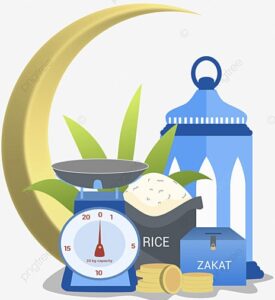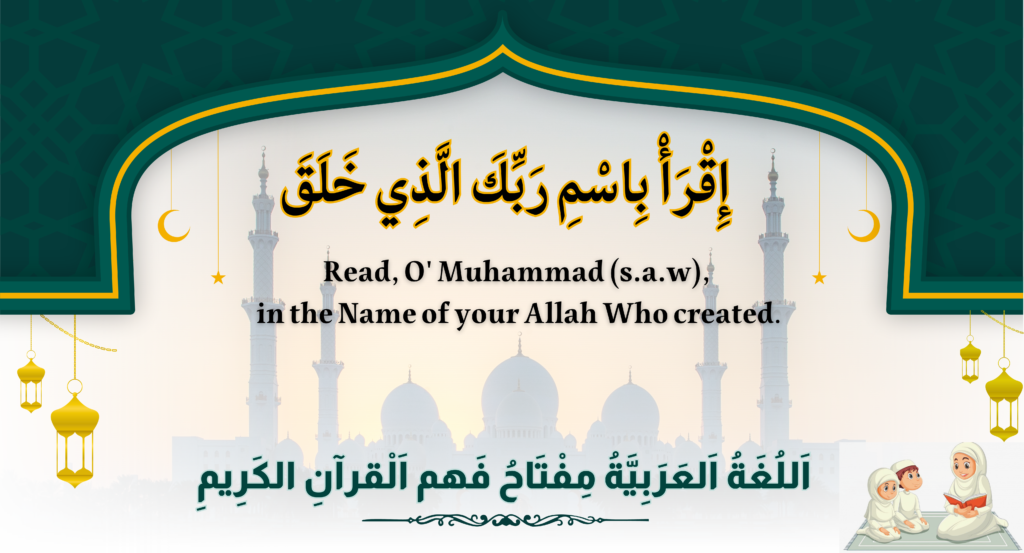Zakat Arabic زكاة “that which purifies also زكاة المالzakat on wealth or Zakat is a form of almsgiving, often collected by the Muslim Ummah. It is considered in Islam as a religious obligation, and by Quranic ranking, is next after prayer salat in importance.
As one of the Five Pillars of Islam, zakat is a religious duty for all Muslims who meet the necessary criteria of wealth to help the needy It is a mandatory charitable contribution, often considered to be a tax. The payment and disputes on zakat have played a major role in the history of Islam, notably during the Ridda wars.
Zakat on wealth is based on the value of all of one’s possessions. It is customarily 2.5% (or 1⁄40) of a Muslim’s total savings and wealth above a minimum amount known as nisab each lunar year, but Islamic scholars differ on how much nisab is and other aspects of zakat. According to Islamic doctrine, the collected amount should be paid to the poor and the needy, Zakat collectors, orphans, widows, those to be freed from slavery, the aged who can’t work to feed themselves, those in debt, in the cause of Allah and to benefit the stranded traveller.

وَأَقِيمُوا الصَّلَاةَ وَآتُوا الزَّكَاةَ وَارْكَعُوا مَعَ الرَّاكِعِينَ
And establish prayer and give zakah and bow with those who bow [in worship and obedience].
Surah-al -Baqra 43
إِنَّمَا يَعْمُرُ مَسَاجِدَ اللَّهِ مَنْ آمَنَ بِاللَّهِ وَالْيَوْمِ الْآخِرِ وَأَقَامَ الصَّلَاةَ وَآتَى الزَّكَاةَ وَلَمْ يَخْشَ إِلَّا اللَّهَ فَعَسَىٰ أُولَـٰئِكَ أَن يَكُونُوا مِنَ الْمُهْتَدِينَ
The mosques of Allah are only to be maintained by those who believe in Allah and the Last Day and establish prayer and give zakah and do not fear except Allah, for it is expected that those will be of the [rightly] guided. Surah-al-Tauba 18

حَدَّثَنَا أَبُو عَاصِمٍ الضَّحَّاكُ بْنُ مَخْلَدٍ، عَنْ زَكَرِيَّاءَ بْنِ إِسْحَاقَ، عَنْ يَحْيَى بْنِ عَبْدِ اللَّهِ بْنِ صَيْفِيٍّ، عَنْ أَبِي مَعْبَدٍ، عَنِ ابْنِ عَبَّاسٍ ـ رضى الله عنهما ـ أَنَّ النَّبِيَّ صلى الله عليه وسلم بَعَثَ مُعَاذًا ـ رضى الله عنه ـ إِلَى الْيَمَنِ فَقَالَ “ ادْعُهُمْ إِلَى شَهَادَةِ أَنْ لاَ إِلَهَ إِلاَّ اللَّهُ، وَأَنِّي رَسُولُ اللَّهِ، فَإِنْ هُمْ أَطَاعُوا لِذَلِكَ فَأَعْلِمْهُمْ أَنَّ اللَّهَ قَدِ افْتَرَضَ عَلَيْهِمْ خَمْسَ صَلَوَاتٍ فِي كُلِّ يَوْمٍ وَلَيْلَةٍ، فَإِنْ هُمْ أَطَاعُوا لِذَلِكَ فَأَعْلِمْهُمْ أَنَّ اللَّهَ افْتَرَضَ عَلَيْهِمْ صَدَقَةً فِي أَمْوَالِهِمْ، تُؤْخَذُ مِنْ أَغْنِيَائِهِمْ وَتُرَدُّ عَلَى فُقَرَائِهِمْ ”.
Narrated Ibn `Abbas:
The Prophet (ﷺ) sent Mu`adh to Yemen and said, “Invite the people to testify that none has the right to be worshipped but Allah and I am Allah’s Messenger (ﷺ), and if they obey you to do so, then teach them that Allah has enjoined on them five prayers in every day and night (in twenty-four hours), and if they obey you to do so, then teach them that Allah has made it obligatory for them to pay the Zakat from their property and it is to be taken from the wealthy among them and given to the poor.” Sahih al-Bukhari 1395

